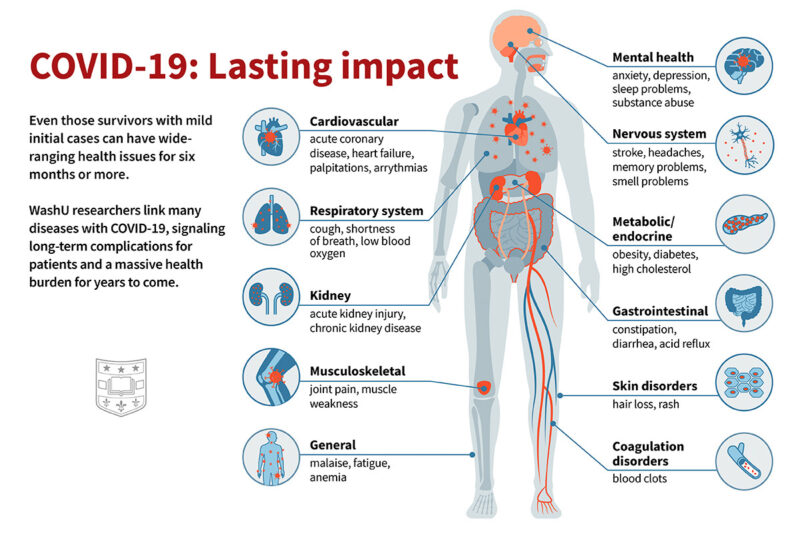Unveiling the Mysteries of Post-COVID Fatigue: A Paradigm Shift in Long COVID Understanding
Published on 7 May, 2024
In the realm of scientific breakthroughs, a recent publication in Nature Communications has ignited a new wave of understanding regarding the lingering effects of COVID-19.
Unveiling profound physiological alterations in patients battling post-COVID fatigue, the study sheds light on severe muscle damage, mitochondrial dysfunction, and micro clot formation.
The research, titled “Muscle abnormalities worsen after post-exertional malaise in Long COVID” emerges as a collaborative effort between experts from Amsterdam Movement Sciences and the Amsterdam Institute for Infection and Immunity Diving deep into the experiences of individuals meeting the World Health Organisation’s criteria for post-exertional malaise, the study underscores critical insights into Long COVID’s debilitating aftermath.
Central to the findings is the revelation that Long COVID patients exhibit lower exercise capacity linked to a higher proportion of fatigable glycolytic fibers and compromised mitochondrial function. Furthermore, the study highlights a concerning escalation of skeletal muscle deterioration post-exercise, hinting at potential myopathic implications exacerbated by amyloid-containing deposits.
Notably, the presence of residual SARS-CoV-2 nucleocapsid protein in the extracellular matrix, comparable between patients and healthy counterparts, challenges previous assumptions regarding the direct correlation between viral remnants and post-exertional malaise.
This groundbreaking revelation paves the way for re-evaluation of rehabilitation strategies, particularly the controversial graded exercise therapy (GET) no longer endorsed in the new NICE guidelines for M.E.

In a society grappling with the aftermath of a pandemic, the implications of this study extend beyond Long COVID, resonating profoundly within the M.E./CFS community. The refusal of outdated treatment modalities like GET, underscored by mounting evidence of its adverse effects, underscores the urgent need for paradigm shifts in medical approaches.
Yet, amidst the strides towards recognition and understanding, the journey towards widespread acceptance of infectious and mitochondrial etiology in M.E. remains arduous.
Organisations like Invest in ME pioneers in M.E. research and advocacy, continue to champion these causes, exemplified by their upcoming International ME Conference Week featuring Professor Rob Wüst.
As we await further research and collaborative efforts, let us remain vigilant in our pursuit of compassionate care and unwavering support for those navigating the challenging terrain of Long COVID and M.E./CFS.
In the face of adversity, may our collective endeavours pave the path for healing, resilience, and renewed hope.
Helpful Resources
You can view Professor Lamberts fascinating webinar on Long COVID from a Clinical Perspective and the Presentation Slides.
Click on AONM’s LONG COVID tab to view Dr. Schwarzbach’s webinar on Post-COVID Viral Reactivation: Incidence and Approaches and also the Presentation Slides.

Invest in ME Research: https://www.investinme.org/index.shtml
If you would like to subscribe to our newsletter and mailing list for any promotional offers and events such as live webinars and training for Practitioners, please send us your details via our Contact Page.



